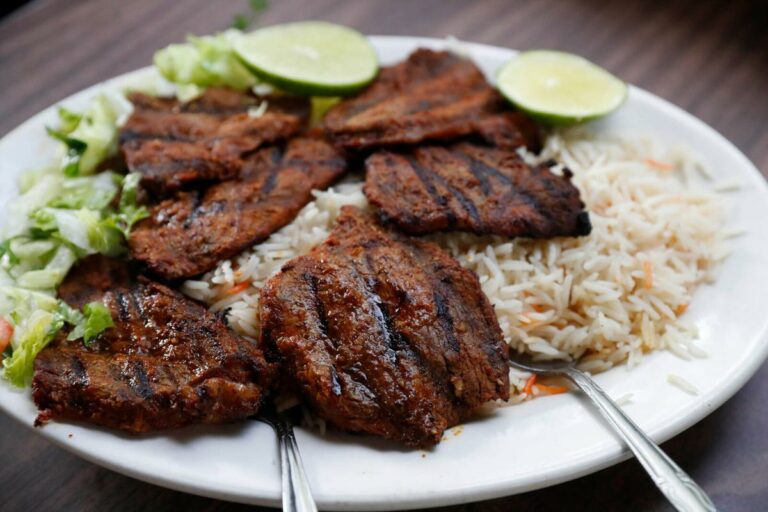Introduction: Exploring Yemeni Street Food
Yemeni cuisine is known for its rich flavors and unique spices. The country’s street food scene is no exception, with a variety of dishes that are sure to tantalize your taste buds. From savory rice dishes to spicy stews, Yemeni street food offers something for everyone. In this article, we’ll take a closer look at some of the must-try street foods in Yemen.
1. Mandi: The Famous Yemeni Rice Dish
Mandi is perhaps the most famous Yemeni street food. This dish is made by slow-cooking marinated meat (usually chicken or lamb) in an underground oven, which gives it a distinct smoky flavor. The meat is served on a bed of rice, which has been cooked in the same oven, and is usually accompanied by a spicy tomato-based sauce. Mandi is a delicious and hearty meal that is perfect for any time of day.
2. Foul: A Hearty Breakfast Staple
Foul is a popular breakfast dish in Yemen. It is made from fava beans, which are cooked until they become soft and creamy. The beans are then seasoned with spices such as cumin, garlic, and turmeric, and are often served with a generous drizzle of olive oil. Foul is usually eaten with bread, and is a great way to start your day with a hearty and nutritious meal.
3. Salta: A Spicy Meat and Vegetable Stew
Salta is a spicy stew that is made with meat, vegetables, and a variety of spices. The dish is usually served in a large clay pot, and is meant to be shared with friends and family. The stew is typically eaten with bread, and is a great way to warm up on a chilly night. Salta is a must-try for anyone who loves spicy and flavorful food.
4. Zurbian: A Flavourful and Fragrant Rice Dish
Zurbian is a fragrant rice dish that is cooked with meat (usually chicken or lamb), vegetables, and a variety of spices. The dish is similar to biryani, but with a unique Yemeni twist. Zurbian is usually garnished with fried onions and raisins, which add a sweet and crunchy texture to the dish. This flavorful rice dish is perfect for any occasion, from a casual meal with friends to a special dinner party.
5. Lahoh: A Delicious and Versatile Flatbread
Lahoh is a versatile flatbread that is a staple in Yemeni cuisine. It is made from a batter of flour, water, and yeast, which is then left to ferment overnight. The resulting dough is cooked on a hot griddle, and is often served with honey, butter, or jam. Lahoh can also be used as a base for savory dishes, such as meat or vegetable stews. This delicious and easy-to-make flatbread is a must-try for anyone who loves bread.
Conclusion: Enjoying Yemeni Street Cuisine
Yemeni street food offers a unique and delicious culinary experience that is not to be missed. From the smoky flavors of mandi to the hearty spices of salta, there is something for everyone in Yemeni cuisine. So the next time you have the opportunity to try Yemeni street food, be sure to give it a try. You won’t be disappointed!

